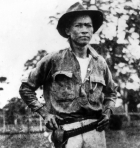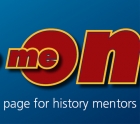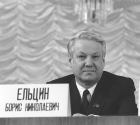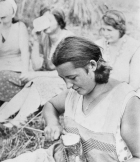Historical Argument
One of the most widely shared misconceptions among young people is that there can be one ‘true’ story of the past and that the value of any given interpretation depends on how closely it approximates to this ideal account. Enabling students to recognise that what historians are actually doing when they write about the past is advancing a series of claims – presenting and defending an argument – will help them not only in handling different interpretations but also in improving their own writing. Read more
Sort by:
Date (Newest first) | Title A-Z
Show:
All |
Articles |
Podcasts |
Multipage Articles
-

How introducing cultural and intellectual history improves critical analysis in the classroom
ArticleClick to view -

How to make historical simulations adaptable, engaging and manageable
ArticleClick to view -

Modelling the discipline
ArticleClick to view -

Move Me On 144: Defines GCSE teaching in terms of a diet of practice exam questions
ArticleClick to view -

Move Me On 186: trainee provides little scope for students to use their knowledge in analysis/argument
ArticleClick to view -

Move Me On 192: analytical focus with diverse histories
ArticleClick to view -

Narrating “Histories of Spain”
ArticleClick to view -

New, Novice or Nervous? 159: Writing history essays
ArticleClick to view -

New, Novice or Nervous? 170: Building students’ historical argument
ArticleClick to view -

New, Novice or Nervous? 174: Building students' historical talk
ArticleClick to view -

Nutshell 105
ArticleClick to view -

Pipes's punctuation and making complex historical claims
ArticleClick to view -

Polychronicon 166: The ‘new’ historiography of the Cold War
ArticleClick to view -

Primary Sources In Swedish And Australian History Textbooks
ArticleClick to view -

SHP and 'What is history?'
ArticleClick to view -

Shaping the debate
ArticleClick to view -

Short cuts to deep knowledge
ArticleClick to view -

Slaying dragons and sorcerers in Year 12: in search of historical argument
ArticleClick to view -

Strategies for A-Level marking to motivate and enable
ArticleClick to view -

Structuring a history curriculum for powerful revelations
ArticleClick to view

